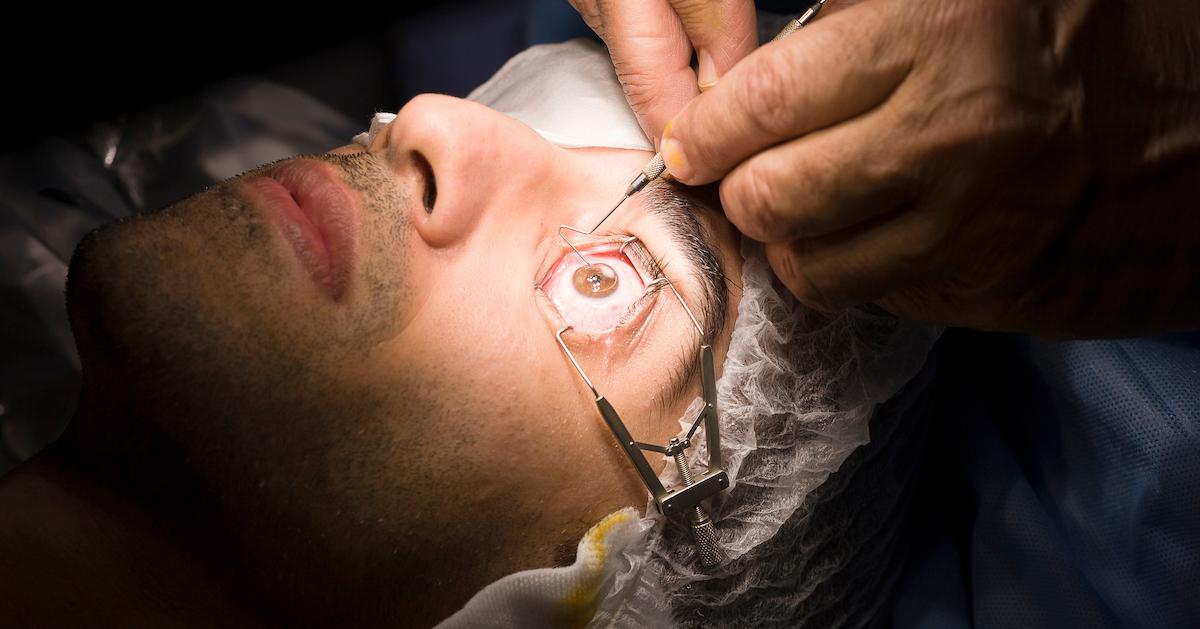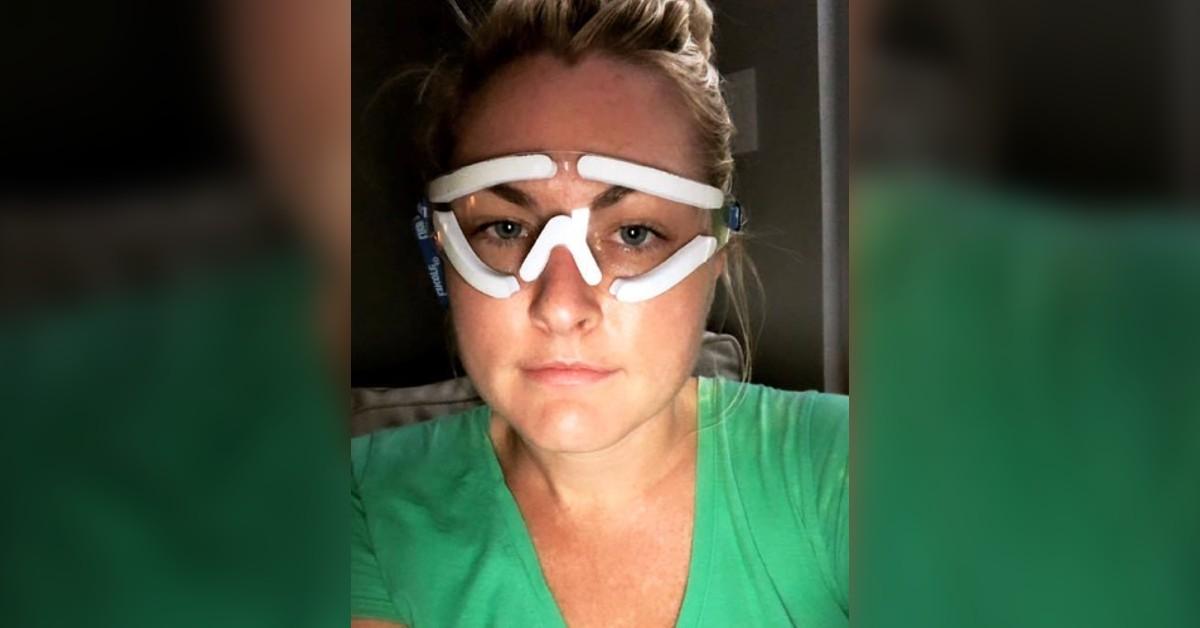Meteorologist Jessica Starr Proved that There May Be a Link Between Eye Surgery and Depression
Updated Aug. 31 2023, 10:30 a.m. ET

Every so often, a video appears on our TikTok feeds that can remind us of the horrors in the world. So when a new video about meteorologist Jessica Starr began circulating, we were reminded of the deep tragedy that happened after her LASIK eye surgery. Two months after the surgery, Starr took her own life, and many have tied that to the surgery.
Typically, we understand LASIK as a safe, elective procedure, but in Starr’s case, things went downhill. She posted videos in the months after the surgery that updated fans and friends on her recovery, but by Dec. 12, 2018, Starr saw no other way out than to take her own life. So what happened to her, and is there a link between depression and eye surgery?
What happened to Jessica Starr? She took her own life two months after eye surgery.
On Oct. 11, 2018, Starr underwent a type of eye surgery called SMILE, which stands for small incision lenticule extraction procedure. It’s supposed to be a less invasive procedure than the standard LASIK with a shorter recovery time. Starr’s doctor told her she’d be a good candidate for the newer SMILE procedure, but the side effects were much more severe than expected.
After the surgery, Starr posted updates about her recovery, several of which were reshared in a TikTok video in July 2023. The video, posted by @tokkingwithstrangers, chronicled Starr’s “recovery” to her suicide. She explained in videos that she wore glasses and contacts for 23 years and working in the media industry, it made sense to get eye surgery.
“I am struggling a little bit,” she said in a video. “So I do still need all the prayers and well wishes.” She reportedly needed eye drops every five minutes after the surgery for months to clear out dry eyes and blurred vision. By December, her problems were not getting better, and doctors simply told her that she just needed more time to heal.
However, she left behind over 30 pages detailing her experience with the surgery and a suicide note before she took her own life on Dec. 12, 2018. She left behind her husband, Dan Rose, and their two children. She was just 35 years old when she took her life.
There are some links between depression or suicide and LASIK eye surgery.
Although eye surgery complications are rare, they aren’t unheard of. And in Starr’s case, the side effects were so bad that she took her own life. While others suggest that there may have been some sort of underlying cause to her depression, her husband denies that possibility.
“Without a doubt in my mind, something related to this procedure triggered this,” Rose told TODAY. "For whatever reason, she thought this was the only way out. I'm having a hard time wrapping my head around that … Within three or four days after the procedure, she started saying stuff like, 'I think something went wrong. I don't feel right.'''
And despite this, doctors could not help her out of the problem. Starr couldn’t work or care for her children as she normally would because of the severe pain and trouble seeing caused by the surgery. Could this really drive a person to suicide?

Well, Paula Cofer, who operates a website focused on LASIK complications, believes there is a link between eye surgery and depression. If the surgery doesn’t go as planned, the side effects in addition to the guilt of getting the surgery can lead to more severe mental health side effects than other surgeries. This is because LASIK is elective, so many feel an enormous burden of guilt after the surgery, especially if it doesn’t go well.
"What they’re not telling you is there are complications to this surgery," Cofer told the Detroit Free Press. “If you were to inform patients of everything I personally believe they should be informed of, nobody would have the surgery … The typical (complaints) are chronic dry eye, eye pain, horrible night vision — people just get depressed … and you’re dealing with a surgeon who is telling you, 'Oh, you’re a success. Your vision is now 20/20' " despite being in pain.”
According to news shared on Cofer’s website, the rate of complications is much higher than expected, falling between 10% and 30%. A 2022 New York Times article found that patients with complications have contemplated suicide, with at least 22 actually committing suicide, according to Cofer.
Starr’s story is definitely a sad one and as we mourn her loss, we’re learning it’s important to make informed decisions when it comes to medical procedures.
